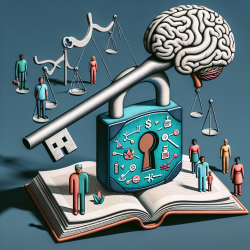As a Special Education Director, I understand the complexities that speech-language pathologists (SLPs) face in schools. It's essential to grasp the difference between educational identification of speech-language impairment under the Individuals with Disabilities Education Act (IDEA) and clinical determinations. Let's dive into key insights on evaluation and eligibility for speech-language services in schools.
Federal and State Regulations
SLPs must navigate various regulations to provide services. Under IDEA, all children with disabilities are guaranteed a free and appropriate public education. States follow IDEA federal regulations and may add additional requirements known as eligibility criteria. It's crucial for SLPs to understand both federal and state-specific regulations to ensure compliance.
Evaluation and Eligibility Criteria
Terminology for school-based services varies across states, but SLPs must distinguish between federal, state, and local requirements. Evaluation should involve a team approach using multiple assessment tools to gather comprehensive data on a student's abilities and needs. Federal regulations require that no single measure be used as the sole criterion for determining eligibility.
Understanding Services Under IDEA
Students meeting federal and state criteria for one of the 14 disability categories, including Speech-Language Impairment (SLI), are eligible for special education and related services. These services are determined by an Individual Education Program (IEP) team. SLPs must ensure their evaluation practices align with IDEA regulations and state requirements.
Dismissal or Exit from Services
When a student no longer requires services, the IEP team reviews data to determine the next steps. This process is guided by state and local regulations. SLPs must follow these criteria to ensure compliance when considering the dismissal or exit of students from services.
Evaluation Components
- Case History and Interviews: Gather information on the student's development, medical history, and academic performance.
- Review of Student Work: Analyze school performance through class assignments, observations, and other educational records.
- Language Sample Analysis (LSA): Assess narrative abilities and language samples to identify impairments.
- Dynamic Assessment: Use test-teach-retest methods to assess the student's ability to improve and determine intervention needs.
Key Takeaways
SLPs play a vital role in ensuring that students with speech-language impairments receive the appropriate services. By understanding and adhering to federal, state, and local regulations, SLPs can make informed decisions that support students' educational success.
For more information, please follow this link.










